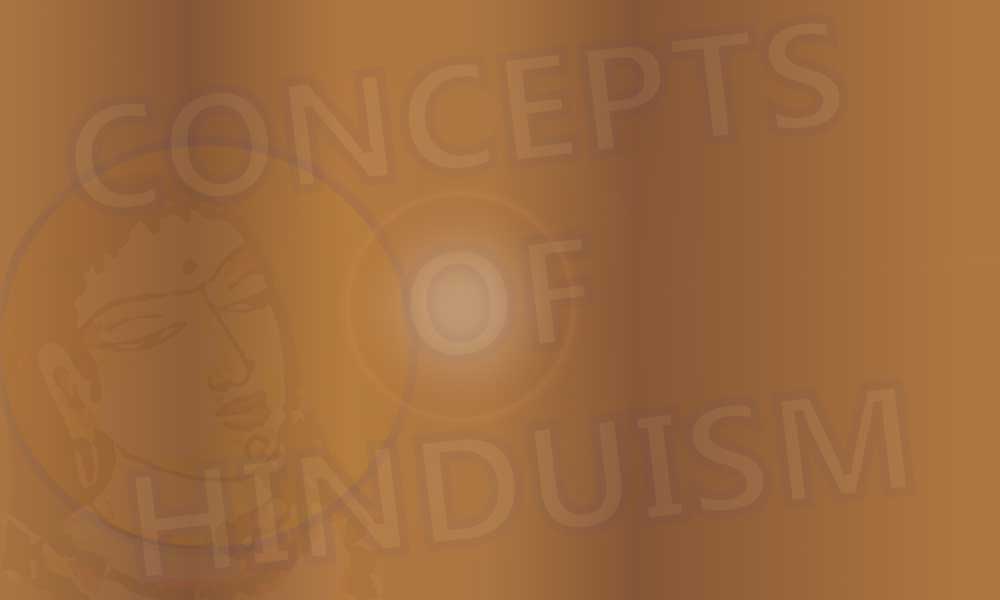
Gods of Hinduism, the Eight Vasus

The Vasus are elemental gods, who are described in some accounts as the attendant deities of Indra and later Vishnu, who is also known as Vasubandhu (relation of Vasus). The Ashta Vasus are described in the Ramayana as the children of Kasyapa and Aditi and in the Mahabharata as the sons of Manu or Brahma Prajapati.
According to the legend, Bhishma was a Vasu who was born upon earth because of a curse. It is said the eight Vasus once stole the divine cow, Kamadhenu (fulfiller of desires) from sage Vashista. With his mystic powers, the sage found out the culprits and cursed them to be born as human beings. Because of his curse, the eight Vasus took birth upon earth as children of Ganga. Seven of them died within a year of their birth, as per the curse of Vashista. The eighth one lived for long and became renowned as Bhishma the Great.
He was the grandfather of both the Pandavas and Kauravas and participated in the Mahabharata war. The names of eight Vasus changed over time. In the Bhagavadgita, Krishna says that among the Vasus, He is Pavaka. This name does not appear in the list of eight Vasus mentioned in the Brihadaranyaka Upanishad, namely Agni, Prithvi, Vayu, Antariksha, Aditya, Dyaus, Soma and Nakstrani. However, Pavaka is an epithet of Agni.
By the time of the Mahabharata, their names were replaced by Anala, Dhara, Anila, Aha, Pratyusha, Prabhasa, Soma and Dhruva. Although the names are different, in their essential meaning both the lists point to the same divinities. Anala is an epithet of Agni. Dhara is water. Anila is the earth. Aha is Vayu. Pratyusha is Aditya, the Sun. Prabhasa is Dyus, the dawn. Soma is the moon, Chandrama and Nakshatrani is Dhruva, the Pole Star. Symbolically, the eight Vasus represent the elemental forces and processes of Nature and the beings, namely earth, water, fire, air, light, weather, day, dawn, pole star, sun, moon, movement, support, transformation, digestion and so on.
Suggestions for Further Reading
- The History, Practice, Benefits and Types of Yoga
- The History and Antiquity of Varanasi
- Descriptions of Rudra, Rudras in Hindu Scriptures
- Agni, the Vedic God of Fire
- Adityas, the Solar Deities
- The Yakshas and Yakshinis
- Akasa, Ether or The Sky and The Fifth Element
- Asvins, the Twin Gods of Healing in the Vedas
- The Concept of Atman or Eternal Soul in Hinduism
- The Problem of Maya Or Illusion and How To Deal With It
- Belief In Atman, The Eternal Soul Or The Inner Self
- Brahman, The Highest God Of Hinduism
- The Bhagavad Gita Original Translations
- The Bhagavadgita, Philosophy and Concepts
- Bhakti yoga or the Yoga of Devotion
- Hinduism And The Evolution of Life And Consciousness
- Why to Study the Bhagavadgita Parts 1 to 4
- Origin, Definition and Introduction to Hinduism
- Symbolic Significance of Numbers in Hinduism
- The Belief of Reincarnation of Soul in Hinduism
- The True Meaning Of Renunciation According To Hinduism
- The Symbolic Significance of Puja Or Worship In Hinduism
- Introduction to the Upanishads of Hinduism
- Origin, Principles, Practice and Types of Yoga
- Essays On Dharma
- Esoteric Mystic Hinduism
- Introduction to Hinduism
- Hindu Way of Life
- Essays On Karma
- Hindu Rites and Rituals
- The Origin of The Sanskrit Language
- Symbolism in Hinduism
- Essays on The Upanishads
- Concepts of Hinduism
- Essays on Atman
- Hindu Festivals
- Spiritual Practice
- Right Living
- Yoga of Sorrow
- Happiness
- Mental Health
- Concepts of Buddhism
- General Essays